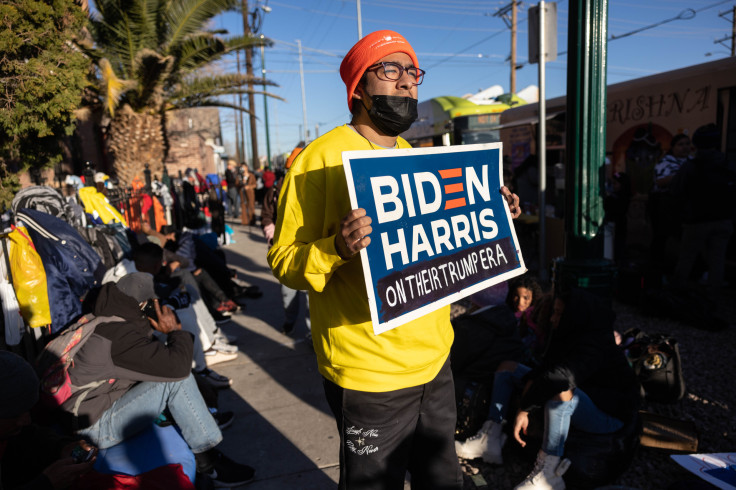
In a recent TelevisaUnivision poll, Latinos were asked about the ways they get information about candidates in the context of the upcoming November elections. They were also asked to rank how influential certain aspects of politics are in how they cast their vote. Researchers found that party loyalty (50%) ranked behind debates (68%) candidate interviews (64%), political programming and news (58%) and articles and online publication (53%) and even party loyalty (50%) on the list.
The results seem to signal that Latinos seem split on the importance of a party's history and legacy when it comes to deciding which candidate to vote for. But the findings also raises the question: have Latinos benefited more from Democratic or Republican parties in the past?
A recent report from the Yankelovich Center for Social Science Research at UC San Diego sought to answer that and other similar questions about the impact of the party of the U.S. president on Black and Latino economic well-being.
The analysis, conducted by political scientist Zoltan Hajnal, scrutinizes U.S. employment, poverty, and income data from the past 75 years, covering 36 years under Democratic presidents and 39 under Republicans. The results overwhelmingly favor Democrats:
"Over the past 75 years, Blacks and Latinos have made significant economic gains and narrowed racial disparities under Democratic presidents, while falling further behind under Republicans — a pattern that highlights the crucial role of presidential leadership in shaping racial inequality in America."
The report highlights that Black median income, for example, increased by approximately $36,000 during Democratic administrations, while Black child poverty and unemployment rates decreased significantly. In contrast, under Republican presidencies, Black median income grew by only about $13,000, and both poverty and unemployment rates worsened.
Latinos, on the other hand, not only do better economically under Democrats, they also tend to catch up to non-Hispanic Whites more when Democrats control the presidency than when Republicans hold power. As the study states:
"The Latino vs. White income gap declined by an average of $79 a year under Democrats, while it grew by almost $600 per year under Republicans. That means that Latinos closed the gap on non-Hispanic Whites almost $700 per year faster under Democrats than under Republicans. Likewise for child poverty the Latino White gap dropped by roughly half a point a year under Democrats, while it grew on average by a little over 0.1 point under Republicans. That matches the patten for unemployment, where the racial gap declined (by 0.17 points on average) under Democrats, only to grow (by 0.08 points on average) under Republicans."
The study does make an important caveat as the Census has fewer years of data on Latino well-being than it has for African Americans, which results in the analysis of Latino outcomes being more limited. Nevertheless, the study points to one factor to consider the viability of the findings: the consistency of the results from year to year:
"On income, poverty, and unemployment Latinos make gains in roughly two-thirds of the years that Democrats are in power. Likewise, racial gaps in poverty and unemployment decline in two-thirds or more of the Democratic years. By contrast, Latinos experience declines in well-being and face increases in racial gaps in half or more years when Republicans are in charge."
The study concludes that which party controls the presidency may be one of the most important influences on economic well-being in America and one of the most important factors shaping racial equality in this country. "However, much racial inequality still exists", explains the study, "there seems little doubt that it would be much greater were it not for an extended period of Democratic party governance."
© 2024 Latin Times. All rights reserved. Do not reproduce without permission.










